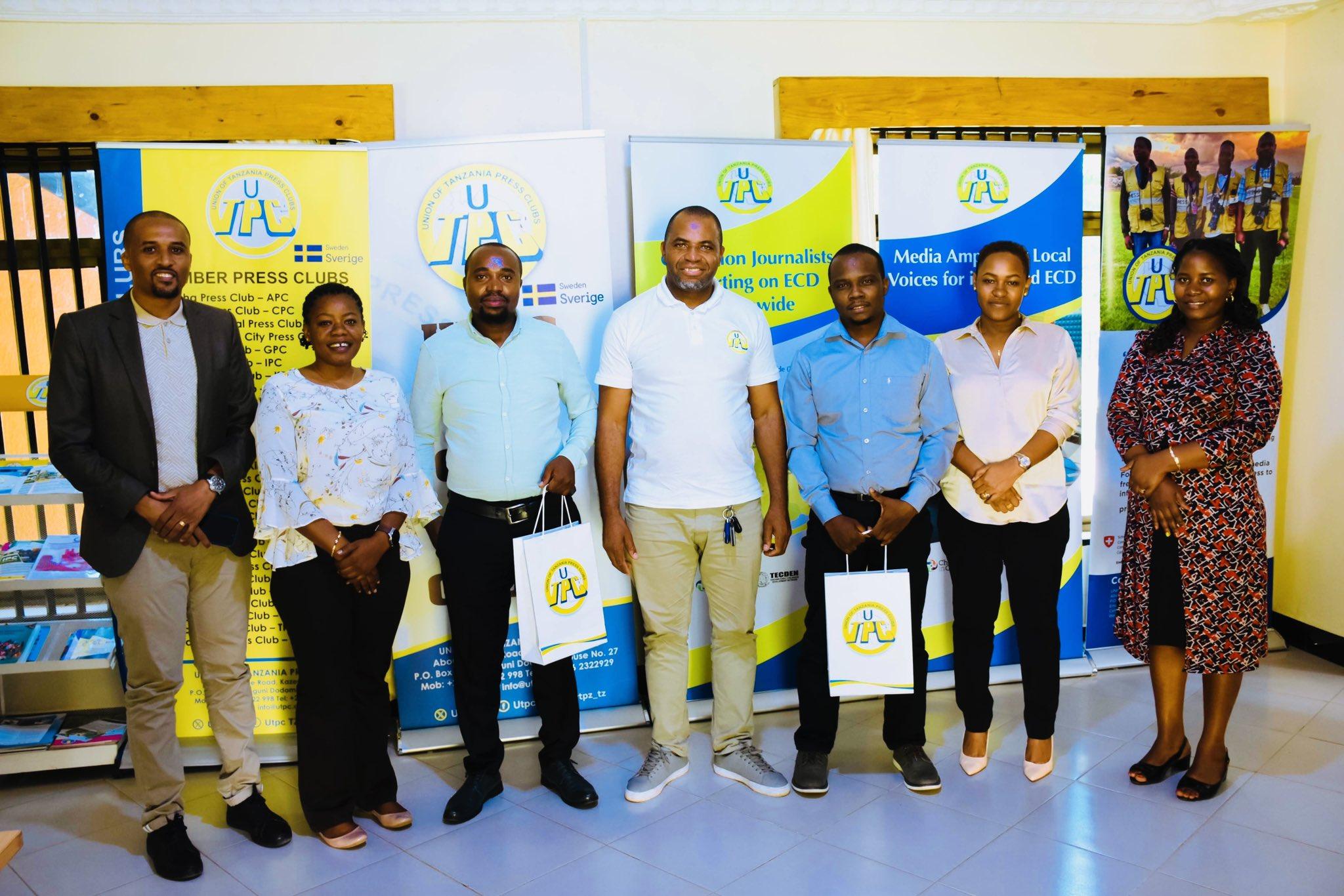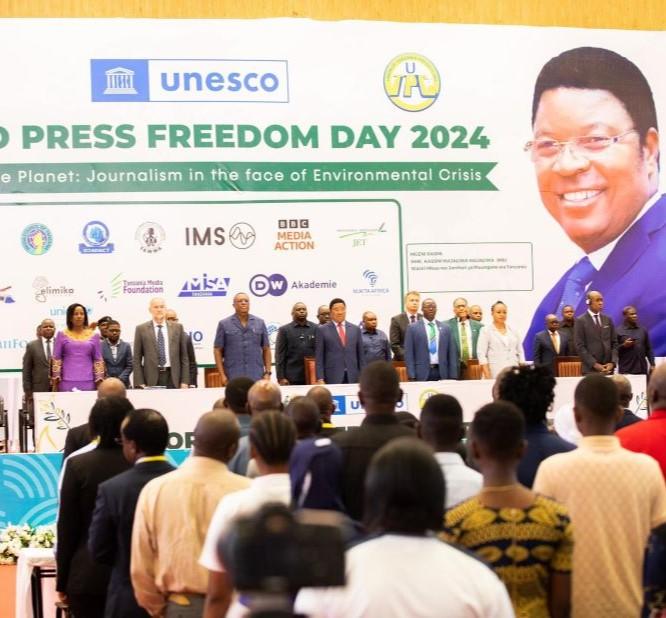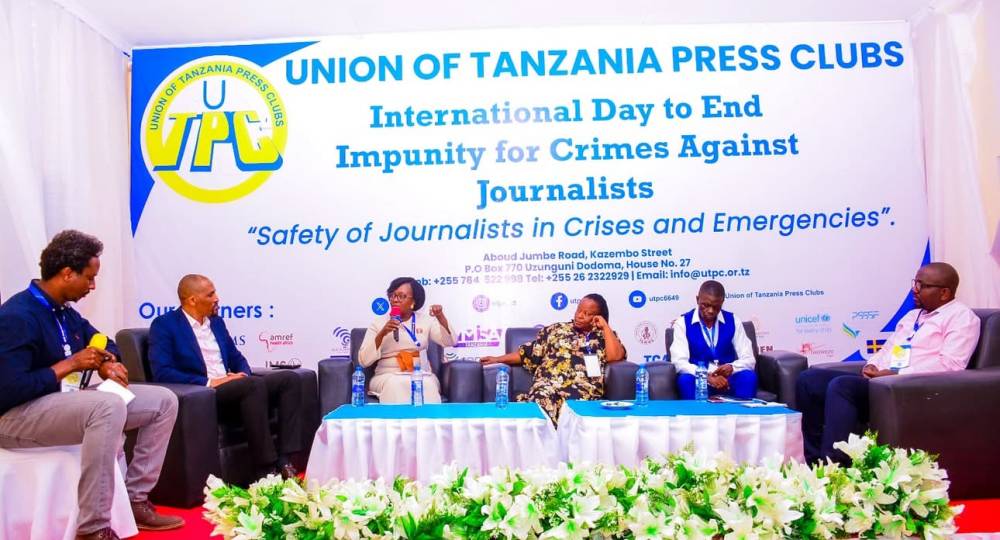30+ Years
Experience

Experience
The Union of Tanzania Press Clubs is abbreviated as UTPC. It is an umbrella body of press clubs in Tanzania. So far it has 28 press clubs which are its members. These press clubs are geographically located all over Tanzania. UTPC is a non governmental organization which was established in 1996 and registered in 1997.It was formed by press clubs to act as their umbrella. It is a membership based organization. Its headquarters is in Dodoma.
Our programmes and interventions ignite change, empowering communities with innovative solutions for sustainable growth, education, health, and resilience
Years Experience
Programmes
User impacted
Regions covered



The Minister for Community Development, Gender, Women, and Special Groups, Hon. Dorothy Gwajima, has officially launched a specialized training program for champion journalists, community radio stations, and Press Club coordinators. This training aims to enhance awareness and advocacy for the National Integrated Early Childhood Development Program (PJT-MMMAM) through the Mtoto Kwanza Phase II Project.
This three-year project commenced in October 2024 and is set to conclude in September 2027. The training has been organized by Children in Crossfire (CiC) in collaboration with other implementing partners, including the Union of Tanzania Press Clubs (UTPC) and TECDEN.
During the launch event, representatives from the President’s Office – Regional Administration and Local Government (TAMISEMI) attended to further support the project's implementation at the community level.
In her opening speech, Minister Gwajima emphasized the critical role of journalists, particularly those in community radio stations, in educating the public about Early Childhood Development (ECD). She urged them to disseminate information that empowers communities to make informed decisions, including advocating for improved access to ECD services.
The Minister also commended UTPC for its dedication to promoting community development through informative reporting on community radio and other media platforms.
Furthermore, she highlighted key priorities for enhancing the well-being of Tanzanian children, including:
Additionally, Minister Gwajima urged journalists to uphold ethical reporting standards, particularly by protecting children’s privacy and refraining from displaying their faces in media coverage.
Through the Mtoto Kwanza Phase II Project, the government and its partners anticipate increased awareness and deliberate actions by both communities and the government to ensure children grow up in environments that foster their holistic development.

Stephen Chimalo, a representative from the Embassy of Sweden in Tanzania, called for improved systems to protect journalists during the global commemoration of the International Day to End Impunity for Crimes Against Journalists, held in Singida.
Chimalo emphasized that journalists in Tanzania, like their counterparts worldwide, face significant challenges and impunity. While they have the freedom to move and gather news, they often lack the assurance of returning home safely, therefore, needs systems that foster the rights and safety of journalists.
Despite these challenges, he acknowledged the efforts of the Union of Tanzania Press Clubs (UTPC) and the International Media Support (IMS) in working to protect journalists through dialogues between the Journalists and Police force to find solutions to their shared concerns.
"I congratulate IMS and UTPC for creating a platform that addresses the safety and security of journalists," Chimalo remarked, adding that the protection of journalists extends beyond discussions to include the need for life insurance.
Fausta Msokwa, the Country Programme Manager at IMS, highlighted the importance of implementing the United Nations Plan of Action on the Safety of Journalists and the Issue of Impunity. This initiative aims to create a free and safe environment for journalists and media workers, both in conflict and non-conflict situations, thereby strengthening peace, democracy, and development worldwide.
Msokwa emphasized IMS and UTPC's commitment to public interest journalism and the need for an enabling environment for freedom of expression and access to information, acknowledging that these principles come with the responsibility of protecting journalists.
Deogratius Nsokolo, President of UTPC, noted that journalists in Tanzania often work in fear due to the impunity surrounding violations of their rights.
"From January to October 2024, UTPC has recorded 14 incidents of journalist arrests, threats, and confiscation of equipment, yet the perpetrators remain unaccountable for their actions," he stated.
Edwin Soko, Executive Director of OJADACT, echoed this sentiment, stating that the lack of accountability for those who commit crimes against journalists has severely impacted the landscape of journalism in Tanzania. The environment for journalists has become increasingly precarious, marked by various forms of intimidation, harassment, and violence.
Soko suggested a multifaceted approach that includes legal reforms, greater accountability for perpetrators, and enhanced support for journalists. "Ensuring a safe environment for journalists is essential for a healthy democracy and an informed citizenry," he concluded
Joyce Shebe, Chief Editor at Clouds Media Group, emphasized the importance of providing psycho-social support to those who have faced violations, helping them to heal from trauma.
On the other hand, Nuzulak Deusen, Director at Nukta Africa, noted that violations against journalists often stem from a lack of familiarity with the laws governing the field.
Recently on January 2025, UTPC organized a special training session for members of the Parliamentary Standing Committees on Governance, Constitution, and Law, as well as Education, Culture, and Sports.
During the training, Judge Robert Makaramba and Advocate Fulgence Massawe delivered presentations aimed at enhancing understanding of issues related to Freedom of Expression, specifically the role of the media in democracy and the role of Parliament in protecting freedom of expression.
The discussions went further to address broader issues such as the significance of freedom of expression in democratic societies, the key international human rights framework regarding freedom of expression, and the Tanzanian legal framework on freedom of expression.
The training took place at the Pius Msekwa Parliament Hall, Dodoma. #FoE #FreedomOfExpression #Media #AccessToInformation #mediafreedom